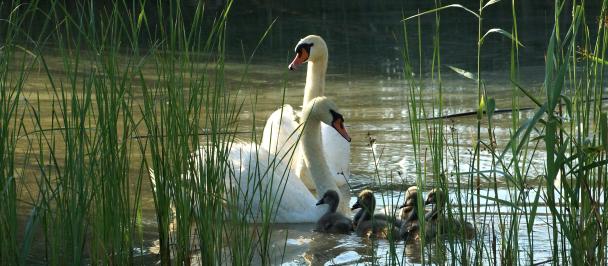Mezhdurechensk selection site, south-east Kazakhstan. Photos credit: Ainur Salimbayeva
Trees are vital for life on earth. They bring benefits to people and the planet on a daily basis: trees help to resist the processes of climate change by absorbing carbon dioxide; they provide shade, cooling our cities and soil; they serve as wind protection, preventing soil erosion and desertification. Trees are hearth and home for many species of birds, insects and animals.
Today, near Almaty, almost 600,000 seedlings of valuable tree breeds and shrubs -- black saxaul, elm, Sivers apple tree, wild apricot and the turanga - are grown on the territory of the Mezhdurechensk selection site. Established in 2020 by the the Republican Forest Selection and Seed Centre, with the United Nations Development Programme (UNDP) and the Global Environment Facility support, the trees and shrubs play an important role in sustainable development and in the conservation of the country's ecosystems.
The project, a joint initiative of the UNDP and the Government of Kazakhstan, aims at restoring the forests in Kazakhstan to ensure the stability of natural ecosystems and wildlife.
It fits in the framework of the United Nations Decade on Ecosystem Restoration (2021-2030) whose goals are protecting and reviving millions of hectares of forests for people and wildlife around the world. Kazakhstan, along with other countries supported this initiative, and the government declared its intention to plant two billion trees during 2021 to 2025.
The weeding of row-spacing in the selection site
The joint initiative with UNDP allowed the selection site to receive state funding. In 2021 more than 70 million tenge in state was allocated from the republican budget for the site’s development. By the end of 2021, a mobile building for employees and a metal hangar for storing equipment will already be installed on the territory of the nursery. A tractor, a mini tractor, two semi-trailers will be purchased.
Water tank, soil cutter and mobile residential car transferred by the UNDP-GEF project
According to Sanat Baymukhanbetov, director of the “South-Eastern Region" branch, Republican Forest Selection and Seed Centre, "UNDP for its part provided support both for the launch of the selection site and for its functioning. We got the Belarus-82.1 tractor, the mobile residential wagon, soil cutters, plows, a water tank, a gasoline generator, a motor pump, multifunctional tillers and a drip irrigation system. For two years now we have a small, but valuable, forest site".
A 20-year veteran of the forestry sector he knows how to grow the trees on the International Union for Conservation of Nature’s Red List of Threatened Species in the laboratory. Previously, he participated in a project growing turanga seedlings by artificial method in 2016.
Baymukhanbetov says, “The costs of preserving and maintaining protected areas and supporting the entire national forestry sector of the country are significantly lower than the costs of restoring lost natural ecosystems. But the forest sector of Kazakhstan suffers from lack of funding, which affects the remuneration of specialists”.
For the record, in 2020 more than 40,000 black saxaul seedlings were planted in the Mezhdurechensk site, today the number is 200,000. Their cultivation is important in the fight against desertification, which affects about 60 percent of Kazakhstan’s territory. There is a moratorium on cutting the saxaul down in the republic until 2023.
One-year old black saxaul seedlings
The seedlings of the saxaul and other valuable species grown are watered with the help of a modern drip irrigation system and transferred to the UNDP as part of the project.
In the future, the plan is to transfer the planting material to the forestry institutions around the country and also to use them for greening cities and villages. Since the beginning of 2021, 40,000 saplings of saxaul have already been transferred to the Uyghur and Koskuduk forestry.
Currently, seven local staff work at the selection site with plans to hire two more staff by end 2021. In difficult weather conditions they monitor the territory, carry out agrotechnical work, prepare the soil, sow, plant and water seeds and seedlings. The goal is to help restore forests. But the staff note that reviving forests and creating woodlands are long-term endeavours that requires time, knowledge and funds.
Adilet Aresh, a worker at the Mezhdurechensk selection site
According to Adilet Aresh, a worker at the selection site, "Working here is not easy, but I’m glad for the job - my main source of income for my family and myself. Plus, I’m engaged in an important task – growing valuable trees and helping to restore our forests”.

 Locations
Locations








